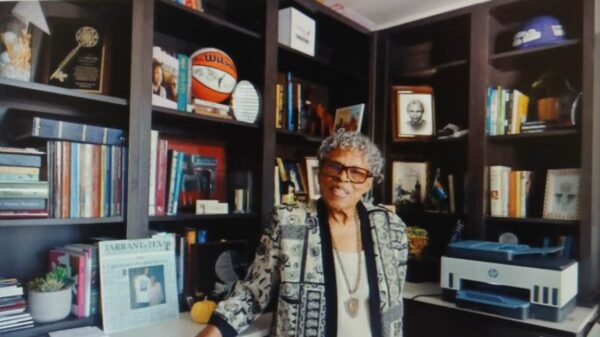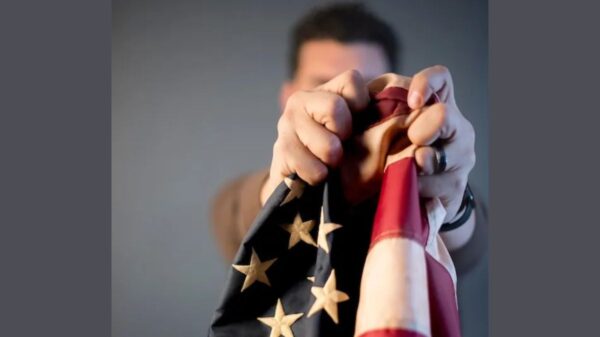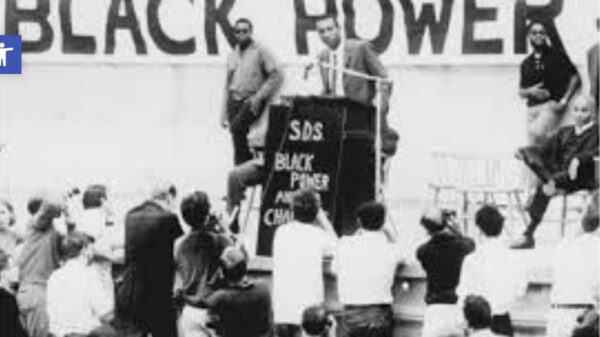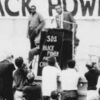By Deborah Bailey
AFRO Contributing Editor

Vashti Murphy McKenzie, the retired and first female bishop of the African Methodist Episcopal Church, used the pulpit of The National Cathedral in Washington, D.C., to render a searing sermon calling the faithful to “put feet to our prayers” as she set the stage for America’s celebration of Juneteenth on June 19.
McKenzie, president of the National Churches of Christ, delivered the morning message at the Cathedral on June 16, and went straight into dissecting the rationale behind America’s cultural wars in the form of book banning, and laws passed restricting how history is taught in schools across the U.S.
According to the Black Education Research Center at Teachers College, Columbia University, 18 states have imposed restrictions and bans on teaching race and gender since 2021. At least 32 states have jurisdictions that have passed some form of book ban.
“If we are a truly great nation, the truth cannot destroy us,” McKenzie said, quoting from Nicole Hannah Jones’ Pulitzer Prize winning 1619 Project. She then asked the congregation: “If you could change the narrative to your liking, what would your truth look like? “
McKenzie led the audience on a whirlwind historical “roll call” of efforts to revise the narrative of cultural events around the globe, including in Hungary, China, and the United States. She reminded the audience of efforts to ban books and restrict the rights of Jews.
“Are you breathing?” she stopped and asked the congregation before reeling off a second roll call of U.S. riots, rebellions and mass shootings from 1863 to today, designed to restrict and destroy Black American institutions and communities.
“Here in the home of the brave and the land of the free, the New York City assacre, The Memphis Massacre, the Camila Massacre, The Opelousas Massacre, The Danville Riot, Springfield Massacre, Tulsa Black Wall Street Massacre, The Orangeburg Massacre, Charleston South Carolina Mother Bethel Massacre, Massacre at Tops Market, the Jacksonville, Dollar Store Massacre…,” McKenzie said in the space of two minutes.
“That’s here,” she added as the audience became silent.
“Are you breathing? Are you still in the room?” McKenzie asked as she moved on quickly to share more.
“Remembering Juneteenth serves as a historical reminder of what did happen,” she said before taking the audience through a vivid tour of brutal historical events characterizing slavery and the disenfranchisement of Black people.
Reflections from the audience were varied.
Longtime parishioner Jim Fulton thought McKenzie’s sermon was needed at the National Cathedral.
“This is the kind of message I want to hear, and I want other people to hear,” he said.
Others added that the sermon was so packed with information, they needed to do a second take.
“For some of our audience, people may be hearing the historical references for the first time. But this is an audience that will listen carefully to the sermon, go back, study the transcript, and ask questions,” said the Rev. Jo Owens, pastor for digital ministry.
Owens said National Cathedral is considering an online community for people who want to ask follow-up questions and reflect more deeply after messages like McKenzie’s.
Grace Matthews was one of those parishioners who was ready to ask the deeper questions right away. Matthews admits she has political positions on most issues and wants to ensure her views are consistent with her faith and values.
As she listened to McKenzie’s description of the often bloody and brutal history leading up to Juneteenth and continuing today, she has questions about how America moves forward with its troubling past and present divisions.
“Where is the line between forgiving and forgetting when you’ve turned the cheek so many times that you’ve run out of cheeks?” Matthews reflected after the sermon.









You must be logged in to post a comment Login